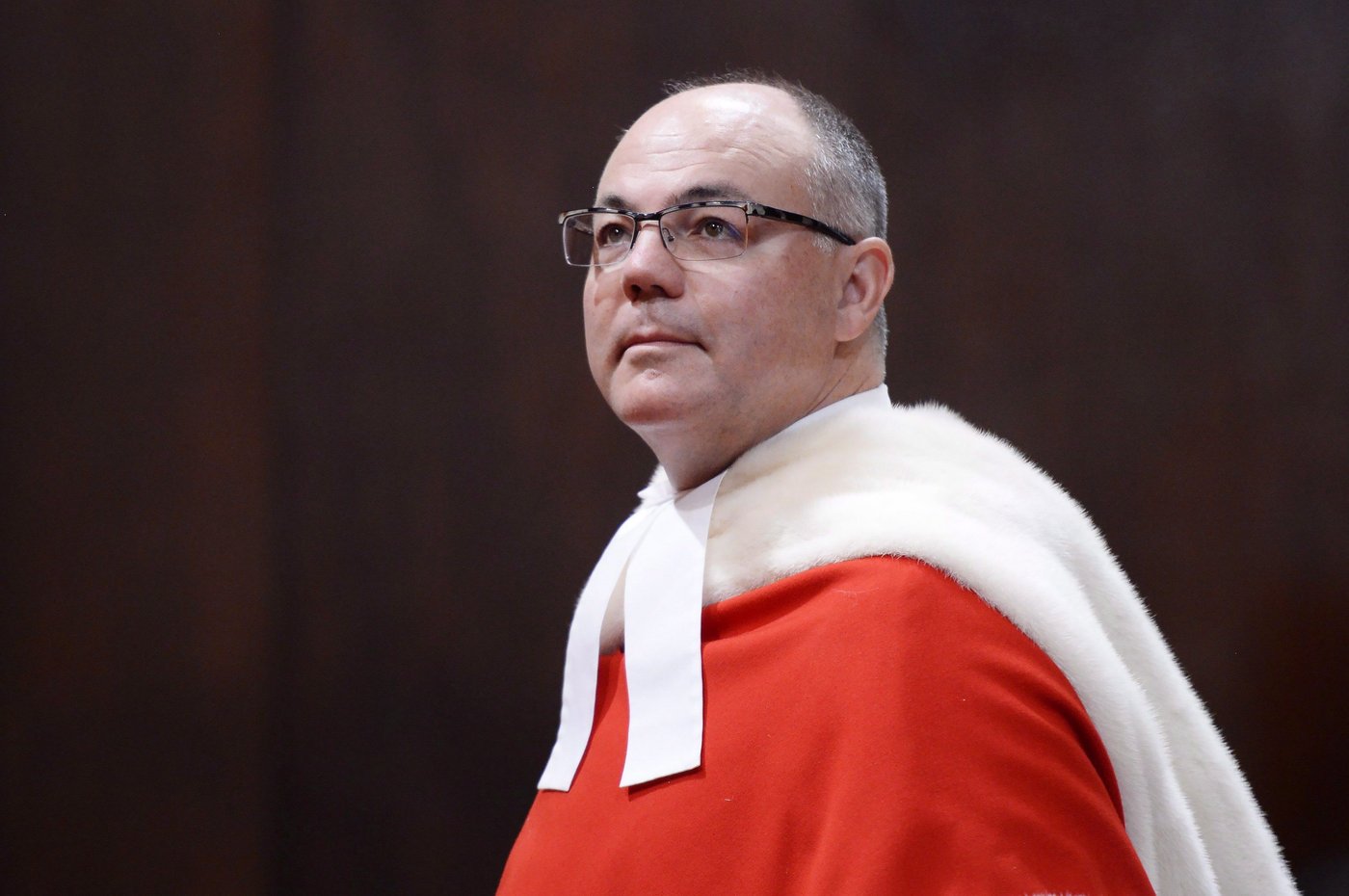Supreme Court Justice Russell Brown spoke out Friday, a rarity for a member of Canada’s highest court, about an alleged altercation in Arizona that triggered a complaint to the Canadian Judicial Council.
In a statement issued by his lawyers, Brown denied details in a newspaper story published Thursday that reported allegations he “harassed” a group of friends during a Jan. 28 encounter at a Scottsdale resort lounge.
In a police report first cited by the Vancouver Sun, the complainant, Jon Crump, accused Brown of being intoxicated and “hitting on” his female companions before punching the justice “a few times” in the face.
Crump told the investigating officer that when the group’s members tried to return to their hotel rooms, Brown followed, despite Crump’s efforts to tell him he was unwelcome and to stop following them.
“Once they got to their hotel room all the females walked inside, followed by Crump, then followed by (Brown),” the officer wrote.
“However, to protect the women and to prevent the drunk, creepy, unwanted male from entering the hotel room uninvited, Crump punched (Brown) a few times.”
The police report said Crump was “argumentative, hostile (and) antagonistic” during his interview with the officer, who wrote he believed that he was “under the influence of alcohol.”
The newspaper, which interviewed Crump, also reported that Crump accused the judge of shoving him before he punched Brown.
The police report said the officer was unable to reach Brown to interview him, but he concluded Crump’s “use of force appeared reasonable and necessary, and no crime was determined.” There were no arrests.
Brown described Crump’s version of events as “demonstrably false,” saying he was invited to join the group before what his statement described as an unprovoked attack.
“Outside the lounge, Mr. Crump objected to me rejoining the group and suddenly, without warning or provocation, punched me several times in the head. Taken by surprise, I was unable to defend myself,” Brown said.
“Approximately one hour after the assault, he called police and, in an apparent attempt to avoid facing the consequences of assaulting me, he falsely described me as the instigator.”
Neither Crump nor other members of the group identified in the media report responded Friday to requests for comment.
Brown, who was appointed to the Supreme Court in 2015 by then-prime minister Stephen Harper, was taking part in an awards ceremony and banquet at the resort ahead of the encounter.
The Vancouver Sun reported the event was to honour former Supreme Court justice and human rights advocate Louise Arbour, who was receiving a prize from Arizona State University.
Brown has been on leave from the court since Feb. 1 pending the outcome of the council’s ongoing investigation.
“This incident has caused me embarrassment and created complications for the court,” his statement said. “I am hopeful that the council will resolve this matter expeditiously.”
The council’s review is “proceeding in a timely way,” said spokeswoman Johanna Laporte. A spokesperson for B.C. Supreme Court Justice Christopher Hinkson, who chairs the council’s conduct committee, also declined to comment.
Details of the altercation have emerged as Parliament considers new legislation designed to change the process by which the council handles allegations against judges.
If passed, Bill C-9 would create a new process for reviewing allegations of misconduct that are not serious enough to warrant a judge’s removal.
The bill, which is currently being considered by the Senate, would also clarify the circumstances under which a judge can be removed, and change the way the council reports its recommendations to the federal justice minister.
The Canadian Judicial Council has authority over federally appointed judges and it receives, reviews and deals with complaints. It works at arm’s length from the executive and legislative branches of government.
This report by The Canadian Press was first published March 10, 2023.
— With files from Ashley Joannou in Vancouver
Related


































